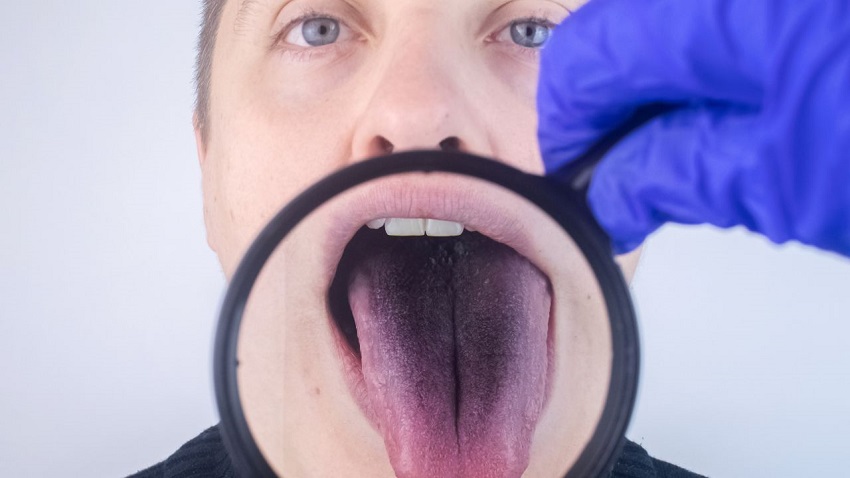
31 Jul What is Purple Tongue a Symptom Of?
Have you ever noticed someone with a purple tongue and wondered what could be causing it? A purple tongue can be a concerning and puzzling symptom, but it is essential to understand that it can be associated with various underlying conditions. In this article, we will explore the potential causes of a purple tongue and what they might signify about a person’s health. This article is provided by styleweekprovidence.com
Understanding the Purple Tongue Phenomenon
Before delving into the potential causes, it’s crucial to understand what a purple tongue entails. A purple or bluish discoloration of the tongue is an abnormal occurrence that catches attention instantly. Typically, a healthy tongue should have a pinkish hue, which can vary slightly from person to person. When it takes on a purple coloration, it may indicate an issue that needs investigation. Check out the dog tongue purple
Causes of Purple Tongue
1. Medications and Treatments
One possible cause of a purple tongue is the side effects of certain medications or treatments. Some drugs, especially those used for cardiovascular conditions or diabetes, can cause discoloration of the tongue. Chemotherapy and radiation therapy, when used to treat cancer, can also lead to changes in the tongue’s appearance.
2. Poor Circulation
Inadequate blood circulation can result in a purple tongue. When blood flow to the tongue is compromised, it may not receive the oxygen and nutrients it requires, leading to discoloration. Conditions like Raynaud’s disease and peripheral artery disease (PAD) can contribute to poor circulation.
3. Cyanosis
Cyanosis is a medical term used to describe the bluish or purple discoloration of the skin and mucous membranes. It occurs when there is a lack of oxygen in the blood. In some cases, cyanosis may manifest as a purple tongue and could be a sign of an underlying respiratory or cardiac issue.
4. Vitamin Deficiencies
Deficiencies in essential vitamins, particularly vitamin B12 and folic acid, can affect the appearance of the tongue. A purple tongue may be an indicator of such deficiencies, and addressing the nutritional imbalance is crucial for overall health.
5. Allergic Reactions
In some instances, an allergic reaction to certain foods, medications, or environmental factors can lead to tongue discoloration. If someone is experiencing a purple tongue along with other allergic symptoms, it’s essential to identify the trigger and seek medical attention.
6. Dehydration
Severe dehydration can also cause the tongue to turn purple. When the body lacks adequate fluids, the tongue may not receive enough blood flow, resulting in the unusual coloration.
When to Seek Medical Attention
While a purple tongue can be benign in some cases, it’s essential not to overlook it, especially if it’s accompanied by other concerning symptoms. If you or someone you know experiences a persistent purple tongue along with difficulty breathing, chest pain, or any other severe symptoms, seek medical attention immediately.
Conclusion
A purple tongue may not be a common topic of conversation, but it can be a vital indicator of a person’s health status. From medication side effects to underlying medical conditions, there are various reasons why a tongue may turn purple. Being attentive to such changes and seeking medical advice when necessary can lead to early detection and appropriate management of any underlying health issues.
FAQs About Purple Tongue
- Is a purple tongue a sign of cancer?
A purple tongue alone is not typically a sign of cancer. However, if it accompanies other concerning symptoms, it’s essential to consult a healthcare professional for proper evaluation.
- Can anxiety cause a purple tongue?
While anxiety itself may not directly cause a purple tongue, stress and anxiety can lead to other health issues that might contribute to tongue discoloration.
- How is a purple tongue diagnosed?
Diagnosing the cause of a purple tongue involves a physical examination, medical history review, and, if necessary, additional tests such as blood work or imaging.
- Can a purple tongue be treated?
The treatment of a purple tongue depends on its underlying cause. For example, if it’s due to a medication side effect, a healthcare provider might adjust the dosage or switch to an alternative. In cases of nutritional deficiencies, supplements might be recommended.
- When should I be concerned about a purple tongue?
If you notice a sudden or persistent purple tongue without any apparent cause, it’s best to consult a healthcare professional for an accurate diagnosis and appropriate management.

No Comments